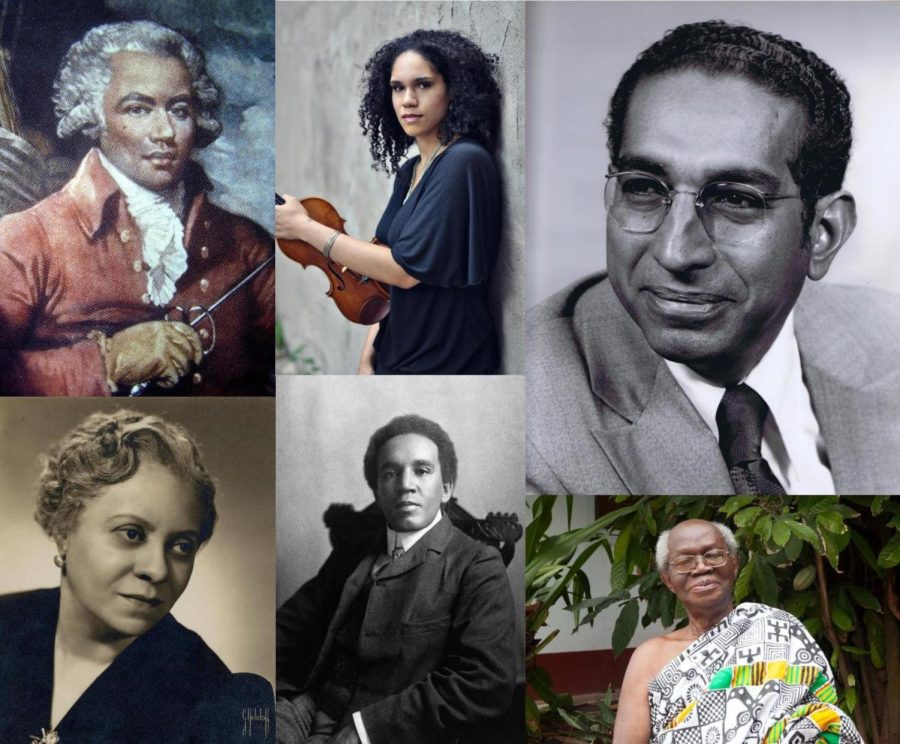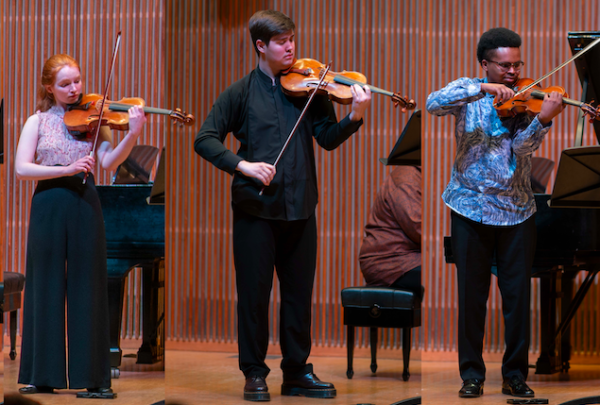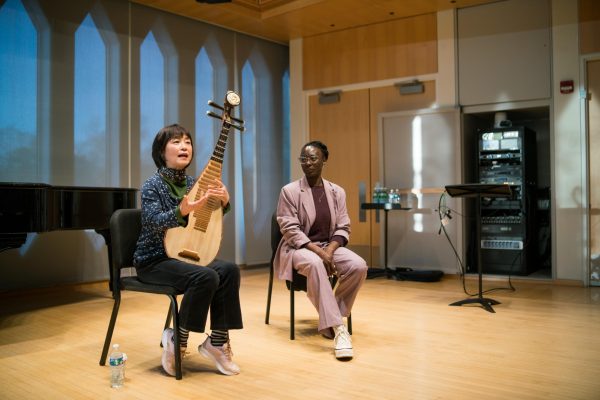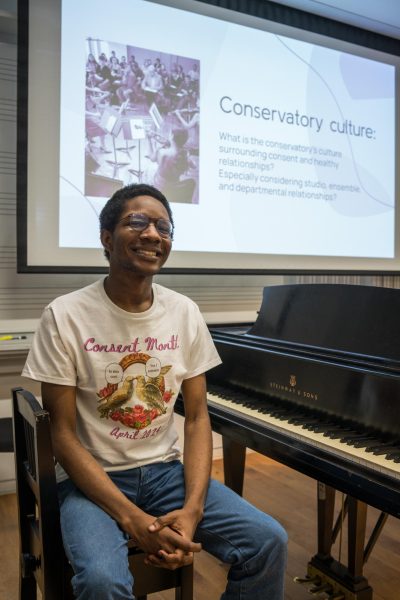Conservatory Creates African American Music Minor
The work of historically marginalized composers will gain more attention in the curriculum for the new African American music minor. In clockwise order from top left: Joseph Bologne, Chevalier de Saint-George; Jessie Montgomery; Roque Cordero; J. H. Kwabena Nketia; Samuel Coleridge-Taylor; and Florence Price.
The Conservatory has established an African American Music minor that will be available to students beginning in the 2022–23 academic year. The minor will be interdisciplinary in nature; courses will be offered within the Conservatory’s Jazz and Ethnomusicology departments and the College’s Africana Studies, Dance, and Theater departments, among numerous other cross-sectional courses available to students.
The introduction of the minor actualizes a broader curricular expansion toward historically marginalized musical fields, following the Conservatory’s Racial Equity and Diversity Action Plan released in September 2020. The Conservatory is restructuring the music theory curriculum to de-emphasize Western art-music as the sole theoretical canon and instead provide students with a greater array of forms to explore.
Along with this pedagogical shift, the Conservatory is hiring new faculty for positions in Jazz History, as well as in African American and African Diasporic Music, to help teach newly available courses in this minor.
Africana Studies Department Chair Charles Peterson, Conservatory Associate Dean Chris Jenkins, and a not-yet named professor in African American Music will collaborate as co-chairs of the minor. They will be responsible for approving students’ academic proposals.
Jenkins says that although new positions will be hired for the minor, the program will also draw on pre-existing academic infrastructure.
“The curricular elements of the minor have been around for a long time; we just needed to formalize them to articulate a single area of study,” Jenkins wrote in an email to the Review. “There is already a lot of interest at Oberlin in studying Black cultural topics, so expanding Conservatory offerings in this area seems like an obvious opportunity.”
The minor requires 20 credit hours for completion: 12 are obtained through required introductory courses, and eight are approved from a variety of courses, contingent on a student’s particular interests in fields ranging from theatrical performance to gospel singing.
For College third-year and Africana Studies major L. Joshua Jackson, the curricular expansion has mostly been a positive change. However, Jackson has concerns that the minor will plaster over pre-existing problems they see in Africana Studies, primarily concerns around professors who do not have tenure-track positions.
“My question would be: Are we taking care of these departments and what we have already that is so rich within Africana Studies — within the context of dance and Africana Studies or theater in Africana Studies?” Jackson said. “This is a huge step for music and Africana Studies, but how are we taking care of what we already have?”
Still, Dean of the Conservatory William Quillen said that being able to draw on both the College’s Africana Studies program, as well as the Conservatory’s resources, is exactly what will make the minor such a special opportunity.
“In many regards, this program formalizes and recognizes pathways of study long-pursued by students in these areas, and lines of scholarly and creative inquiry of interest to faculty and staff throughout campus,” Quillen said in a Campus Digest email. “We are delighted to create this program in partnership with our colleagues in the College, and we look forward to the intellectual and artistic explorations it helps inspire.”
Jenkins says that he has already heard from students who are excited about the new program.
“I think that interest in the minor is likely to drive the creation of new courses to satisfy its requirements,” Jenkins wrote. “Many students have written to me already to express their interest, so I am hopeful that many students will take advantage of this pathway and that their interest will nudge faculty towards creating new courses.”
Jenkins is also hopeful that the minor might be the start of creating more academic programs that more broadly represent historically Black music in the Conservatory curricula.
“There are many different directions this type of study can take,” he wrote. “Curricular change is very slow, but it’s not unreasonable to imagine that over the course of years, this might be expanded into a major or some other type of program, given sufficient student interest.”





